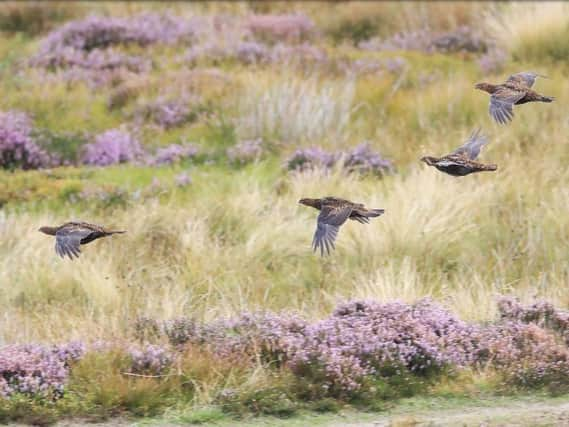Ban on grouse moor burning could happen if Calderdale Council approves


Calderdale’s ruling Labour Group has agreed to the move as voluntary moves to scale the process back have not proved 100 per cent successful.
Cabinet member for Climate Change and the Environment, Coun Scott Patient (Lab, Luddenden Foot), said unique circumstances in Calderdale - which has suffered three major floods in eight years, with natural flood management a growing component of flood alleviation work - were part of the reasoning for the group’s decision.
Advertisement
Hide AdAdvertisement
Hide AdCoun Patient said that although it was hoped legislation could be produced promptly, the proposals would need to be supported by the full council.
Full council meetings are only set to resume later in the summer although committee and Cabinet meetings have been running successfully in virtual form, because of the COVID-19 pandemic, on the council’s YouTube channel since late April.
Coun Patient indicated approval was likely to come down the line from that.
He also stressed the group did not think all moorland burning was down to grouse shooting ownerships and the proposal did not just relate to that – there had been incidents where people had taken barbecues onto moorland risking starting fires.
Advertisement
Hide AdAdvertisement
Hide AdThis was because moorland burning had a broad range of ecological impacts including degrading peatlands, releasing harmful gases into the atmosphere and, if fires from whatever source burned out of control, it put pressure on the fire service, risked damaging habitat and could impact on communities’ flood resilience, said Coun Patient.
“There has been an attempt, through voluntary initiatives, to scale back – to reduce and eventually eliminate – the burning of fragile and important peat ecosystems, but that has not proven 100 per cent successful as had been hoped.
“The council’s leading group welcomes the Government’s decision to legislate to end burning because the alternative approach of voluntary arrangements simply has not worked,” he said.
Burning heather on the moorland is done to encourage new shoots for grouse to feed on to come through, engineering an optimal breeding habitat for the game birds, says the Labour Group proposals.
Campaigners who are opposed to grouse shooting have welcomed the move.